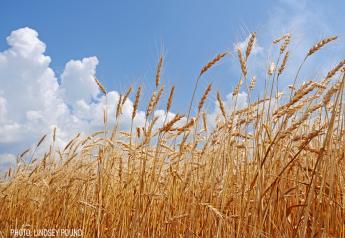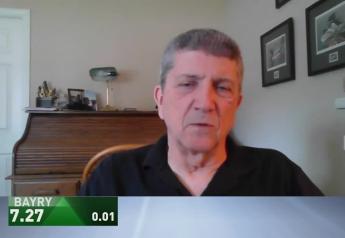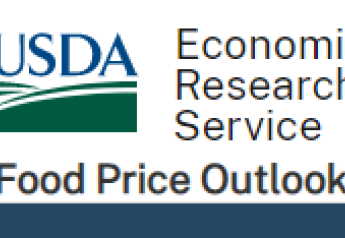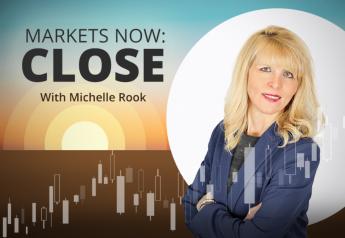Russia Now Says It's Ready to Allow Food Exports From Ukraine, But With Conditions
Ukranian Ports Blocked 052522
Russia says its ready to allow food exports from Ukraine, with conditions.
Russia is ready to provide a humanitarian corridor for vessels carrying food to leave Ukraine, in return for the lifting of some sanctions, the Interfax news agency cited Russian Deputy Foreign Minister Andrei Rudenko as saying.
“We have repeatedly stated on this point that a solution to the food problem requires a comprehensive approach, including the lifting of sanctions that have been imposed on Russian exports and financial transactions," Rudenko was quoted as saying. “And it also requires the demining by the Ukrainian side of all ports where ships are anchored. Russia is ready to provide the necessary humanitarian passage, which it does every day.”
Russia is in touch with the United Nations on the issue, Rudenko was quoted as saying by RIA news agency. The U.S. and Britain have floated the idea of using Western ships to escort Ukrainian vessels out of the Black Sea. Rudenko says that would “seriously exacerbate the situation.”
Other important notes include:
- Poland is pushing the U.S. and European Union to help rapidly expand the rail infrastructure needed to export Ukraine’s looming grain harvest, circumventing Russia’s naval chokehold in the Black Sea.
- U.S. Treasury Dept. moved to cut off Russia’s ability to make payments on its dollar-denominated sovereign debt, putting Russia on a path toward defaulting on its foreign debts this summer and deepening the country’s economic isolation after its invasion of Ukraine. Economists estimate that the costs associated with sovereign defaults to be roughly equal to between 2% to 3% of the size of the country’s economy—and hurt economic growth in the long-run. Not only do they typically elevate a country’s borrowing costs, they also put pressure on a country’s banking system.
- Treasury Secretary Janet Yellen: "If Russia is unable to find a way to make these payments, and they technically default on their debt, I don't think that really represents a significant change in Russia's situation," she told reporters last week at a G7 finance ministers meeting. "They're already cut off from global capital markets, and that would continue."
- Viktor Orban, Hungary’s prime minister, declared a state of emergency in response to what he called the “economic crisis” created by the war in Ukraine and sanctions on Russia. The move will allow him and his government to rule by decree, bypassing parliament.
- Russian fuel oil exports to Greece reached a new high in April, with ship-to-ship (STS) transfers becoming more common.
- The Russian parliament moved toward approving legislation that would allow the state to nationalize the assets of foreign companies that have left Russia.
Market Impacts:
- Ukraine’s economy has lost about $1 trillion because of Russia’s invasion,according to Oleh Ustenko, an economic adviser to the Ukrainian president, as the NYT reports. He said the estimate was based both on direct losses, such as destruction of infrastructure, and indirect losses such as reduced investment and exports. Ukraine’s GDP stood at $155.6 billion in 2020, according to the World Bank.
- A harsh winter could force Europe to ration gas, a global energy leader warns. Fatih Birol, the executive director of the International Energy Agency, said Tuesday that he was warning leaders in Europe to create backup plans in case harsh winter weather forced countries to conserve natural gas. “I’m afraid that I cannot exclude the risk this winter that we are facing a rationing of gas,” Birol said during an interview with the NYT at the World Economic Forum, the annual gathering of global business leaders in Davos, Switzerland. “I’m advising several European governments to prepare a contingency plan.”
- Countries around the world have enacted a wave of export curbs on foodsince the start of the Ukraine war, a trend that economists say risks aggravating shortages and global food-price inflation. On nearly every continent, nations have put new restrictions and bans on products ranging from wheat, corn and edible oils to beans, lentils and sugar. Lebanon has even banned the export of ice cream and beer, the WSJ points out.
- The European Central Bank said that Russia’s war in Ukraine has increased risks to the eurozone’s financial stability. The bank cited higher commodity prices and sluggish growth. Its bi-annual report on financial risks stated that “virtually all” aspects of economic activity and financial conditions have been impacted by the war.







